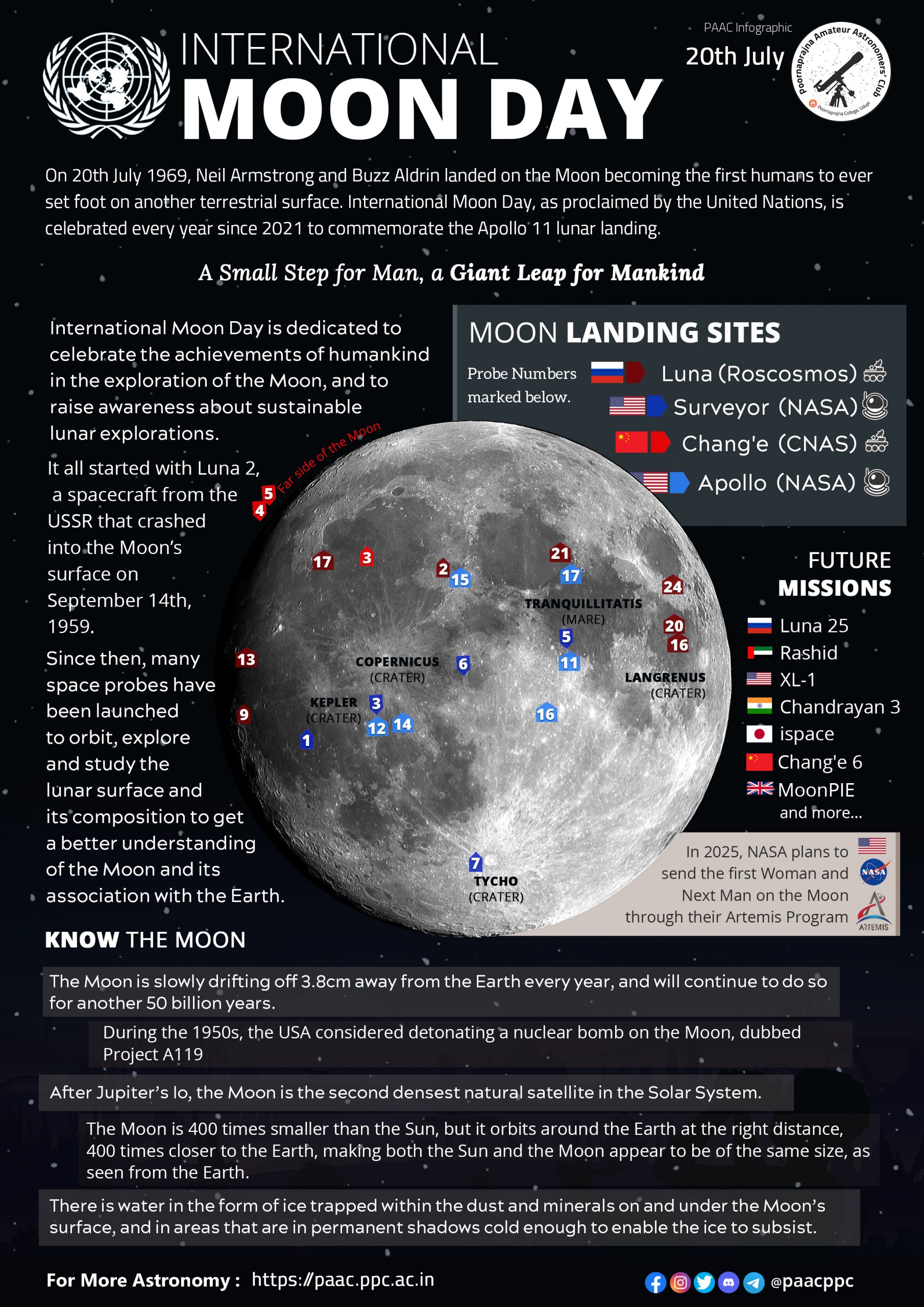Why in the News?
Observed every year on July 20, the International Moon Day marks the historic first human landing on the Moon by the Apollo 11 mission in 1969.

About International Moon Day:
- Date & Purpose: Observed annually on July 20 to mark the Apollo 11 Moon landing in 1969.
- UN Recognition: Declared by the UN General Assembly in 2021 on the recommendation of COPUOS.
- First Observance: Officially celebrated for the first time on July 20, 2022.
- Activities: Includes sky-gazing, science outreach, and student competitions to promote space awareness.
- Date Controversy: While the lunar module landed on July 20, Neil Armstrong stepped onto the Moon at 2:56 UTC on July 21—yet July 20 remains the official date.
Significance:
- Historic Milestone: Celebrates Apollo 11 and humanity’s first step on the Moon by Neil Armstrong and Buzz Aldrin.
- Peaceful Space Use: Promotes the Moon as a shared heritage and fosters international cooperation in outer space.
- Sustainability Focus: Encourages responsible and eco-friendly exploration of lunar resources.
- Global Unity: Reflects the UN’s vision of peaceful space collaboration under themes like “One Moon, One Vision, One Future”.
| [UPSC 2009] India has recently landed its Moon Impact Probe on the Moon. Among the following countries, which one landed such probe on the Moon earlier?
Options: (a) Australia (b) Canada (c) China* (d) Japan |
Get an IAS/IPS ranker as your 1: 1 personal mentor for UPSC 2024

